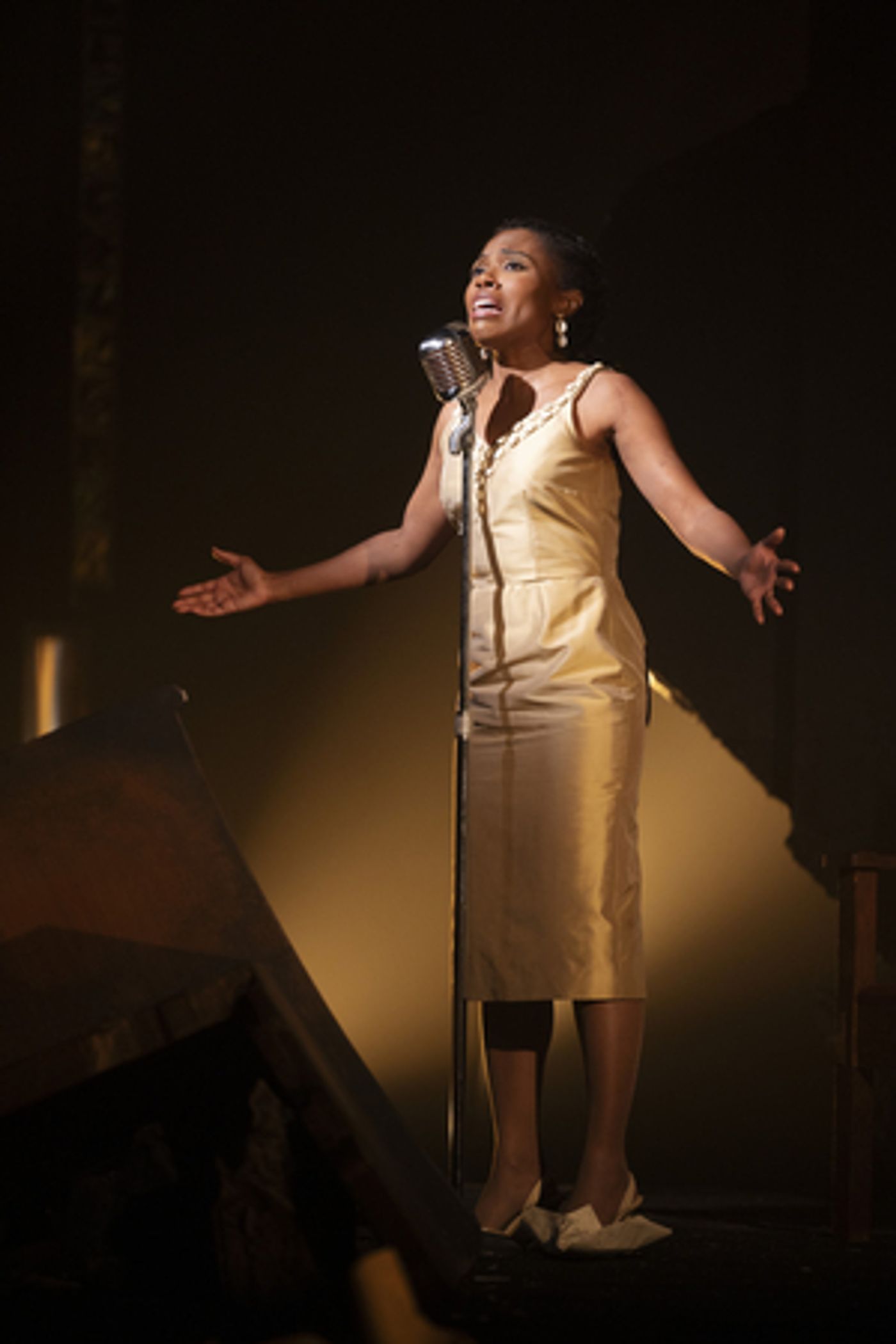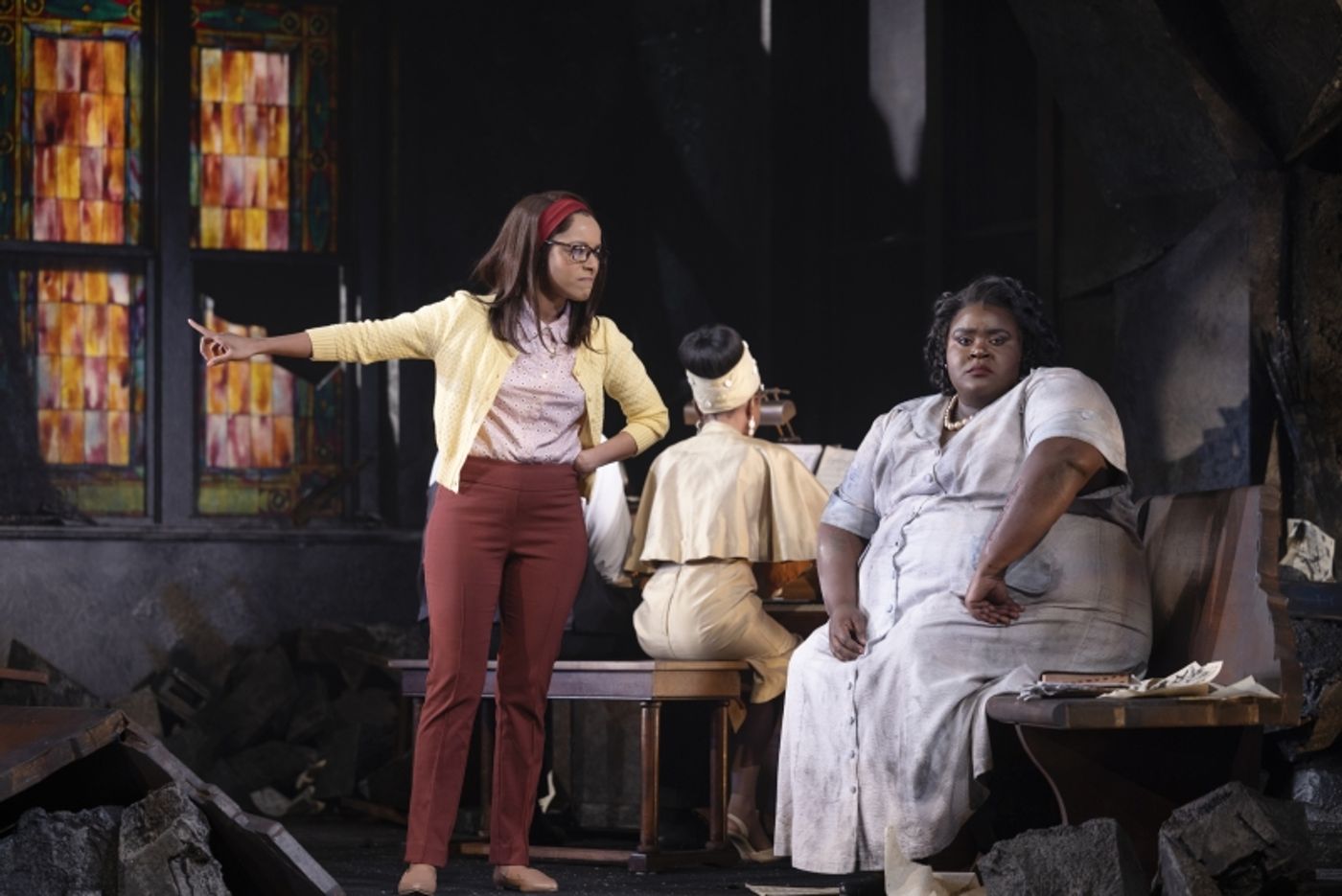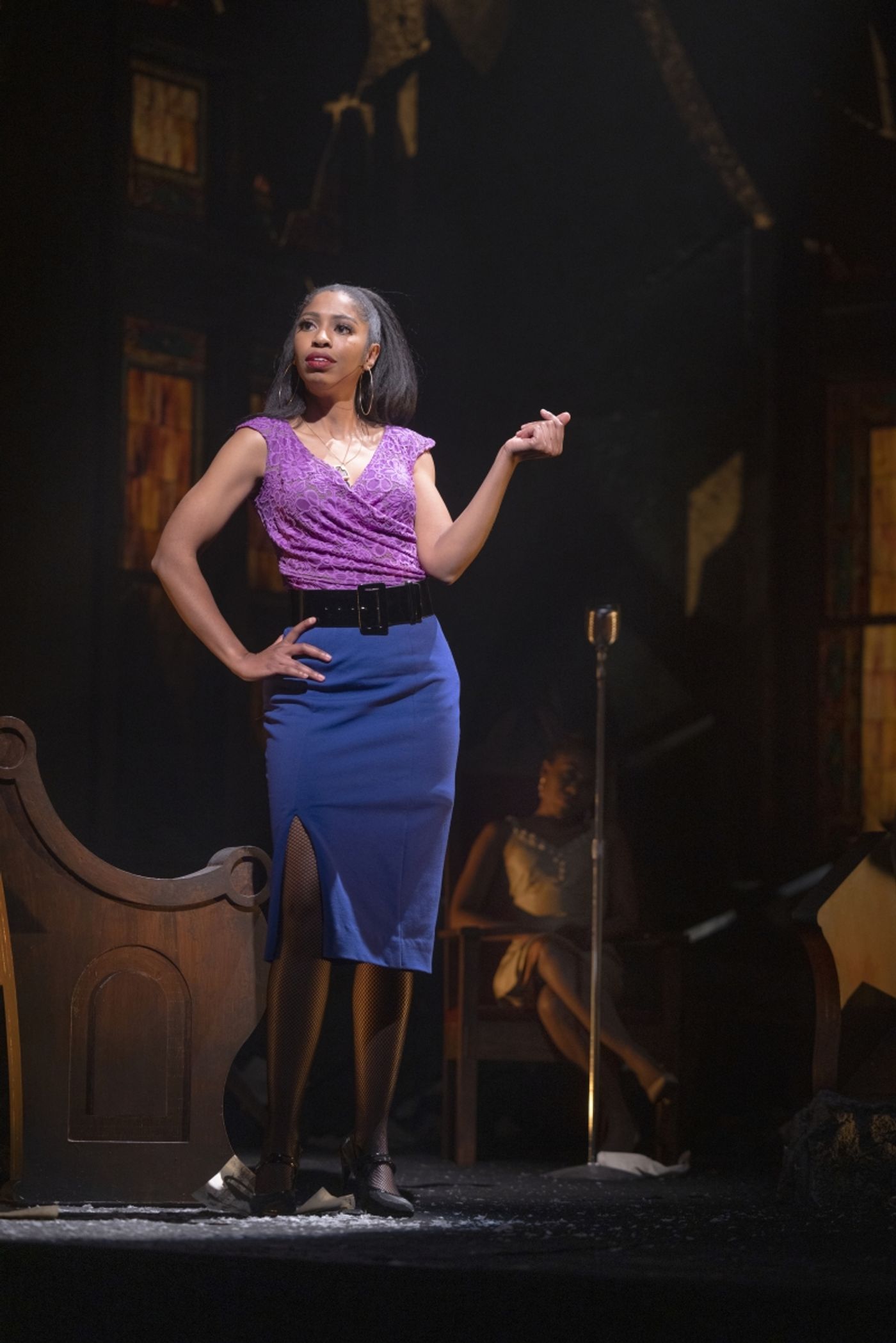Review: ATC Production Stuns With Artistic Fury
NINA SIMONE: FOUR WOMEN is a rousing battle cry for social justice.

It begins with a startling display of technical theater rarely seen in a play's exposition. No sooner does Nina Simone commence her signature rendition of I Loves You, Porgy, than a salvo of cries and explosion disrupts her performance. The prologue cuts off mid-song, dissolving to a grim spectacle of a church rubble in the wake of a heinous bombing by the Ku Klux Klan.
A cacophony of ambient street noises, punctuated by intermittent gun shots, commands our attention to a nation in crisis. At rise, we meet Sarah, a housemaid and a grieving member of the church now in ruins.
Upstage left is a church piano, miraculously unblemished from the blast. On the piano bench sits Nina with a male pianist, their backs to the audience as she gathers piles of sheet music. The church debris is a chilling spectacle (fabulous set design by Arnel Sancianco), made especially poignant by Philip Rosenberg's lighting design, as if we're seeing the smoldering sanctuary from the light of the sun seeping in through shattered windows.
Situating Nina Simone in the immediate aftermath of the 16th Street Baptist Church Bombing of 1963 is a dramatic device to spotlight our heroine's transformation in the wake of violent attacks by white supremacists. The racial tumult of the 60's reemerges as a historical backdrop for Christine Ham's gripping play with music, NINA SIMONE: FOUR WOMEN, now showing with theatrical outrage at Arizona Theatre Company.
Directed by Tiffany Nichole Greene, FOUR WOMEN is nothing short of cathartic: stunning and bold in all aspects of production. It's another testament to the company's mission to nurture and develop new works reflecting the social exigency of modern America. In FOUR WOMEN, history reminds us there's no rest for the weary, and the call for racial justice is a collective effort requiring sustained vigilance.
The irony here is not so subtle. Ms. Ham's play thumbs its nose at the growing political hysteria over which segments of American history should be taught in schools. It's a volatile nation that tiptoes between insight and shame as it reexamines its sordid past. Nonetheless, FOUR WOMEN is dauntless in its appeal to uphold historical reality amidst current grievances about a manufactured problem.
Nina Simone's change in trajectory began with the assassination of Civil Rights leader Medgar Evers; then the bombing of 16th Street Baptist Church that killed four Black schoolgirls and wounded others. Nina has had enough, her blinding rage rousing her to write songs to reflect the indignity and pain inflicted on the Black community. "Mississippi Goddam" is an anthem born out of her fury and indignation.
The song is called Four Women, whose message inspired Christine Ham to write the play documenting Simone's artistic activism. It's a masterpiece that celebrates the archetypes of Black women in history, a manner of exposing the various forms of racism and blatant sexism to which Black women were subjected. Though it was met with initial disdain by media powers that be, the song defied the odds and became a classic.


The first of the four women is Sarah (the magnificent Deidra Grace), a caretaker who works two jobs, the singular symbol of African enslavement ("My skin is black...My back is strong/Strong enough to take the pain"). The second woman is Sephronia, (treated with layered resentment by Katya Collazo). She has lighter skin, born of a white father and a black mother. Her pain lies in the conflicted space between two worlds and the grievous recognition of the white man's upper hand.
Kia Dawn Fulton is the sensuous, self-assured third woman who prefers to be called "Sweet Thing." She's a sex worker who gets her validation from both white and black clients ("Whose little girl am I? Anyone with money to buy.")
Peaches is the fourth woman with whom Nina Simone identifies. Candace Thomas saturates her with rapt austerity and a vocal fury that shivers the spine. In fact, one imagines all four women being capable of restoring the church from the rubble with the sheer power of their voices. The message is clear: Together, the women are infinitely stronger than their individual differences.
A comparative weakness is the absence of music halfway through the show, where the ensemble dispenses a protracted dialogue that rivals a church sermon. An additional song could provide unction where words begin to fray the senses. We get that it's not a musical in conventional form, but some critics don't mind the indulgence of a soulful number, especially coming from the exalted repertoire of Nina Simone.
NINA SIMONE: FOUR WOMEN continues through 3/19 at the Temple of Music and Art in Tucson, and in Phoenix (Herberger Theater) on 3/24 - 4/10
For tickets, visit www.arizonatheatrecompany.org
or call 1-833-ATC-SEAT (1-833-282-7328)
email: boxoffice@atc.org
.
Reader Reviews
Videos

